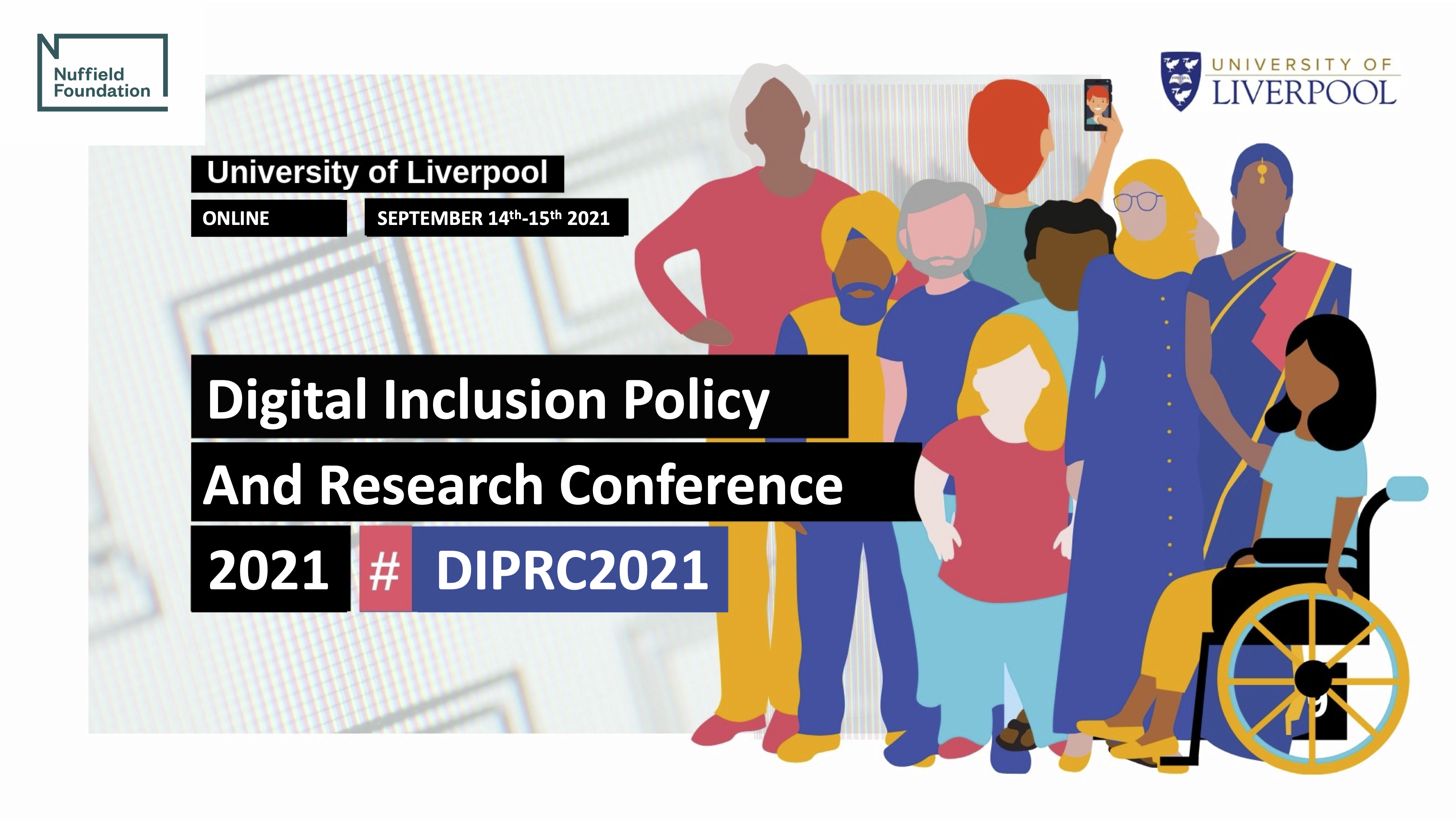
The experience of lock-down and COVID-19 shows that inequalities in access to and use of digital media have measurable impacts on the life chances, health, and economic wellbeing of citizens. Collaboration between University of Liverpool and the GoodThings Foundation identified over 13 million UK citizens (20%) who were limited or non-users of the Internet, with the majority being from lower-income households.
The experience of the pandemic has placed access, skills and digital literacies into sharp focus for many national and regional government agencies. In the UK these include the Department for Digital, Culture, Media and Sport (DCMS) or city regions such as Greater Manchester. Their equivalents globally have also had to respond as have global agencies such as UNESCO and WHO. This conference will bring together academic research with policymakers and stakeholders to review the current state of the art in digital inclusion policy and practice.
We will also launch the final report of our Nuffield Foundation funded project on Citizens Data Literacy at this event. This project highlights the significant gaps in digital and data literacies across different groups in the UK.
To register for the conference please follow the Eventbrite site instructions below.
The conference will draw upon over two decades of research, policy, and practice. Over this time digital inequalities and digital inclusion practice have changed in response to developments in digital technologies and media. Though key themes have remained, such as: material and financial access; skills and digital literacy; effective use by citizens and communities; the impact of socio-economic factors; motivation and attitudes; and, more recently socio-economic and socio-cultural variations in patterns of usage. Digital inequities, therefore, have become an important part of broader persistent issues of social equity and justice.
The primary aim of this conference is to link up international policy efforts to address digital inequalities, access and skills with the outcomes of recent research from around the globe. The intention is to support sharing best practice and research insights.
The conference will be a mix of invited presentations from policy and research colleagues, along with open paper sessions. Presentations will cover empirical research as well as policy and practice interventions, such as:
-
Data analysis of levels of digital inclusion/exclusion and engagement
-
Studies of the impacts of digital exclusion
-
Policy interventions
-
Case studies of initiatives and programmes
-
Case studies of community impact
To register for the conference please click here.
We look forward to seeing you in September.